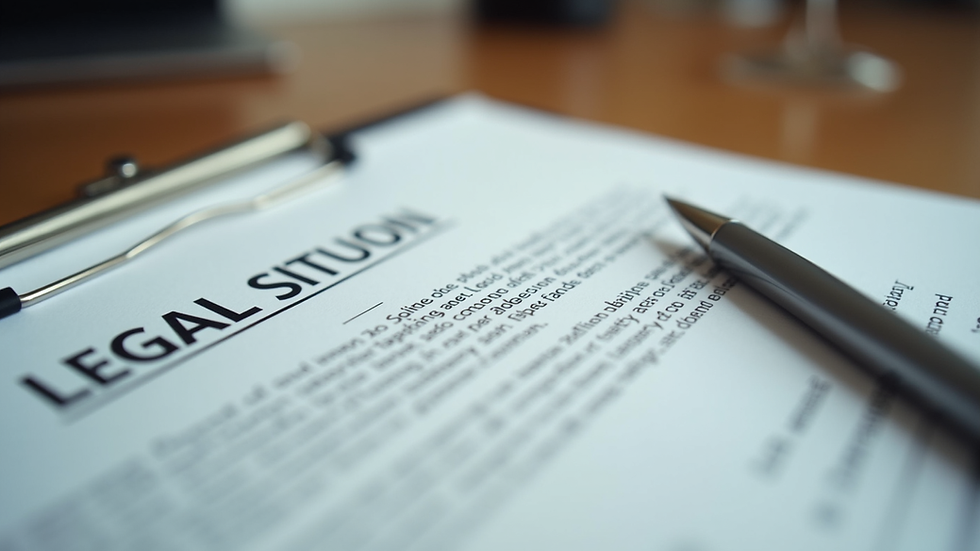What You Need to Know About UK Inheritance Tax
- Anita Barker
- Oct 27, 2025
- 3 min read
Understanding the financial implications of passing on your estate is crucial. In the UK, inheritance tax can significantly affect the value of what you leave behind. This guide will help you navigate the essentials of UK inheritance tax, offering clear explanations and practical advice to help you plan effectively.
Understanding UK Inheritance Tax Basics
Inheritance tax is a tax on the estate (property, money, and possessions) of someone who has died. In the UK, this tax is charged at 40% on the value of the estate above a certain threshold, known as the nil-rate band. As of the current rules, the nil-rate band is £325,000. This means if your estate is worth less than this amount, no inheritance tax is due.
There are additional allowances, such as the residence nil-rate band, which can increase the threshold if you leave your home to direct descendants. For example, this allowance can add up to £175,000 to the nil-rate band, potentially increasing the total threshold to £500,000.
It’s important to note that gifts made during a person’s lifetime may also be subject to inheritance tax if the giver dies within seven years of making the gift. This is known as the “seven-year rule.”

Key Factors Affecting UK Inheritance Tax
Several factors influence how much inheritance tax might be payable:
Value of the estate: This includes all assets such as property, savings, investments, and personal possessions.
Debts and liabilities: Outstanding debts can reduce the value of the estate.
Gifts made before death: Gifts given within seven years before death may be taxed.
Exemptions and reliefs: Certain assets and transfers may be exempt or qualify for reliefs, such as business property relief or agricultural relief.
Spouse or civil partner transfers: Transfers between spouses or civil partners are generally exempt from inheritance tax.
For example, if someone leaves their entire estate to their spouse, no inheritance tax is due at that time. However, when the surviving spouse dies, the estate may be subject to tax unless proper planning has been done.
How to avoid 40% inheritance tax?
Avoiding the 40% tax rate legally requires careful planning. Here are some strategies:
Use your nil-rate band and residence nil-rate band: Make sure to utilise these allowances fully.
Make gifts during your lifetime: Gifts made more than seven years before death are usually exempt.
Set up trusts: Trusts can help manage how assets are passed on and may reduce tax liability.
Consider life insurance: A life insurance policy written in trust can cover potential inheritance tax bills.
Charitable donations: Leaving at least 10% of your estate to charity can reduce the tax rate to 36%.
Business and agricultural reliefs: If you own a business or farmland, these reliefs can reduce the taxable value.
For example, a person might gift £100,000 to their children and survive for more than seven years, meaning this amount is not included in their estate for tax purposes.

Practical Steps to Take Now
To prepare effectively, consider the following actions:
Create or update your will: Ensure it reflects your current wishes and takes advantage of tax allowances.
Keep detailed records: Document gifts and financial transactions.
Seek professional advice: Estate planning specialists can provide tailored strategies.
Review your assets regularly: Changes in value or circumstances can affect your tax position.
Communicate with beneficiaries: Clear communication can prevent disputes and confusion.
For instance, updating your will to include a trust can protect assets for younger beneficiaries and reduce tax exposure.
Understanding the Role of Professional Advice
Inheritance tax rules can be complex and subject to change. Professional advisors can help you:
Navigate tax laws and reliefs
Structure your estate efficiently
Minimise tax liabilities legally
Ensure your wishes are carried out smoothly
Using a specialist can save your beneficiaries significant amounts of money and stress. They can also help with filing necessary paperwork and deadlines.
Planning for the Future
Effective estate planning is about more than just tax. It’s about ensuring your assets are distributed according to your wishes and that your loved ones are supported. Start early, review your plans regularly, and adapt to changes in your life or legislation.
By taking control of your estate planning, you can reduce the impact of inheritance tax and provide peace of mind for yourself and your family.
For more detailed information, visit inheritance tax.
%20(750%20%C3%97%20250px)(2).png)



Comments